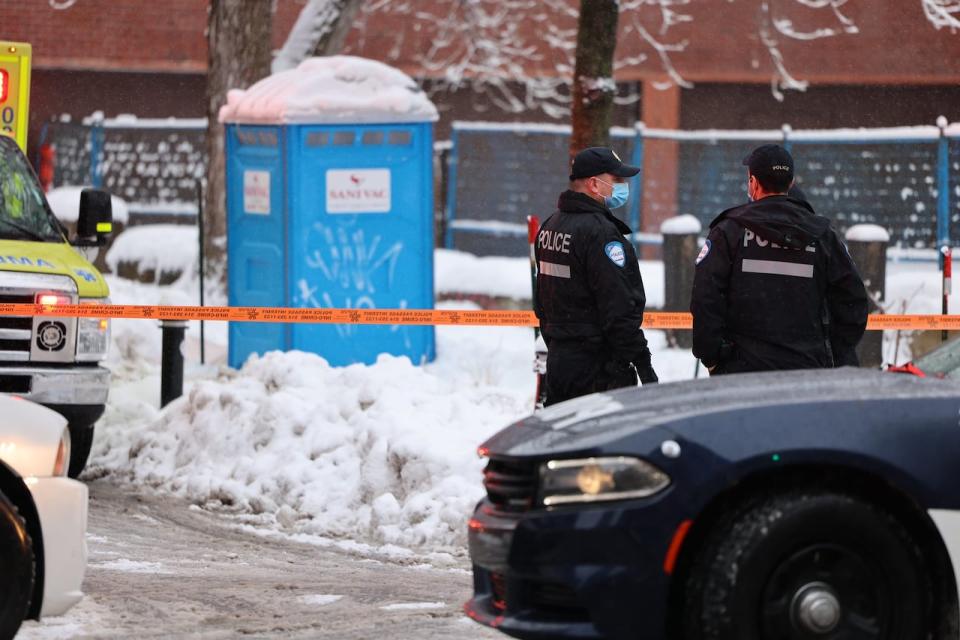Coroner's inquiry begins for Innu man found dead in public toilet during height of pandemic
A public coroner's inquiry began Monday into the death of Raphaël André, a 51 year-old Innu man found dead in 2021 inside a public toilet located steps away from a shelter that was closed due to a COVID-19 outbreak.
André, originally from Matimekush-Lac John in northern Quebec, was living on the streets in Montreal at the time of his death.
At the time of his death, the coronavirus was spreading rapidly and the Quebec government had imposed a province-wide curfew in an effort to keep it at bay.
"What is indisputable for me is that Raphaël is a vulnerable person due to various health issues that we will have to look at as part of this investigation," coroner Stéphanie Gamache, who's leading the inquiry, said in an opening statement.
"He also had no fixed address while we were in a very dark period in our recent history," Gamache said.
The first witness at the inquiry was Montreal police detective Alexandre Bertrand, who investigated André's death.
Bertrand testified that the day before André was found, he was taken to the Centre hospitalier de l'Université de Montréal (CHUM) after falling while intoxicated.
Bertrand said André left the hospital in the early evening of January 16th and went to the Open Door shelter in the Plateau-Mont-royal borough, where he often stayed.

Normally that shelter was open 24 hours a day, but at the time public health officials ordered the shelter closed overnight due to a COVID-19 outbreak.
Alexandre testified that André was found dead the next morning in a portable chemical toilet near the Open Door shelter.
COVID-19 restrictions under scrutiny
The province was under a curfew order when André died.
People found outdoors without a valid reason after 8 p.m. could be arrested and face fines.
Many groups at the time called for an exemption to the curfew for people living on the streets, but premier François Legault refused, saying that if there was an exemption for homeless people that "anyone could pretend to be homeless" in order to avoid being fined.
A month after André died, the Native Women's Shelter and Resilience Montreal opened a warming tent in Cabot Square as a tribute.
On Monday, the head of the women's shelter, Nakuset, posted a photo of the tent on social media site X.
"Today is the public hearing on the death of Raphaël André, an Innu man who died during the COVID 'curfew', when the govt made it illegal to be on the streets," Nakuset wrote in the post.
The inquiry also heard Monday from members of an interdisciplinary team from Notre-Dame Hospital that works with homeless people.
The inquiry is taking place at the Longueuil courthouse, which is scheduled to last a month.
It will also hear from public health experts, people who work with the homeless and members of André's family.


